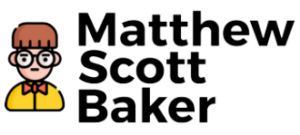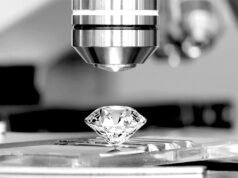Zinc is an essential mineral that helps the body absorb iron, regulate hormones and build strong bones. You might not know this, but it’s especially important for expecting mothers to get enough zinc in their diet. Women who have trouble gaining weight during pregnancy may also be deficient in zinc. This mineral is also important for the production of testosterone, which is important if you want to build muscle and lose weight.
Everyone knows what a vitamin is, and everyone knows how important it is to take a daily multivitamin. But what if I told you there was another major dietary component that you should consider including in your daily routine? Zinc, for starters, is a mineral that is worth its weight in gold, and which is absolutely essential for your overall health and wellbeing.
Zinc is one of the most vital nutrients for humans. Without it, our body would not be able to create proteins, synthesize DNA, enzymes and other important biological molecules. It has been found to be essential in maintaining healthy immune function, especially in the elderly. Zinc also plays a vital role in growth, wound healing and maintenance of the skin, nails and hair. It was named the most important trace mineral by the United Nations because it is necessary for the growth, development and proper functioning of all of the body’s systems.
A Quick Look
Zinc is a mineral that the body can only get through diet, preferably animal foods since they assist with absorption. Zinc has a variety of roles in the body, including growth and development, brain function, reproduction, and immunological function, as well as cell structural maintenance. Zinc may be found in a variety of foods, including chicken, oysters, wild game, mushrooms, sesame seeds, and others.
Overview
Zinc is a mineral that humans need. You must get it via food since your body does not manufacture it (or supplements). Zinc from animal diets seems to be better absorbed. Cysteine and methionine, two amino acids, may help in zinc absorption. It may be difficult to absorb adequate zinc if you consume too much folate, supplementary iron, calcium, or dietary phytates.
Importance
Zinc serves a variety of purposes in the body, including:
- Growth, development, brain function, reproduction, and immunological function are all aided by this substance.
- Assisting in the process of apoptosis (cell death)
- Acting as a catalyst: zinc is required for enzymes to catalyze chemical processes.
- Supporting cell structure: Zinc is required for the structure of proteins and cell membranes; when zinc is removed from these structures, these structures become vulnerable to oxidative damage and function deteriorates.
- Gene expression, cellular signaling, hormone release, and nerve transmission are all aided by this protein.
Sources of Food
Zinc is present in a variety of foods, including:
Deficiencies
Symptoms and diseases associated with zinc deficiency include:
- slowing of growth
- Immune system impairment
- Anomalies of the skeleton
- Sexual maturation is delayed.
- Wound healing is poor.
- The flavor of things changes.
- Blindness at night
- Hair loss is a common occurrence.
Your reaction, on the other hand, may be unique to you. Please contact your main health care physician if you suspect a health issue or nutritional deficit (doctor, naturopath, etc). They can assist you in deciphering the complexities of your physiology.
The elderly, those with alcoholism, those with malabsorption disorders, vegetarians, and those with chronic diarrhea are all at risk for deficiency.
Excess/Toxicity
Excess/toxicity of zinc may cause the following symptoms:
- Pain in the abdomen
- Diarrhea
- Nausea
- Vomiting.
Your reaction, on the other hand, may be unique to you. Please see your primary health care provider if you suspect a health issue or an excess of specific nutrients (doctor, naturopath, etc). They can assist you in deciphering the complexities of your physiology.
Note: Excessive zinc intake over time may lead to copper deficiency.
Recipe
Check out any of the food items mentioned above in the Encyclopedia of Food for zinc-rich dishes.
Book of Free Recipes
Every month, the Encyclopedia of Food grows as we include new delicacies and stunning food photography. Simply click this link to keep up with the latest news. Following that, we’ll give you a complimentary copy of our recipe book. We’ll also notify you when we introduce new and tasty items to the site.
For a free copy of the Encyclopedia of Food recipe book, go here.
Foods That Are Related
Zinc is an essential mineral that is responsible for a number of important functions in the body, including the growth and repair of tissues and the production of hormones, enzymes, and proteins. It is also important in the production of antibodies, which are important in the fight against infections, and in the prevention of cancer.. Read more about zinc benefits and let us know what you think.
{“@context”:”https://schema.org”,”@type”:”FAQPage”,”mainEntity”:[{“@type”:”Question”,”name”:”How can I increase zinc naturally?”,”acceptedAnswer”:{“@type”:”Answer”,”text”:”
There are a few ways to increase zinc in your diet. One way is to eat foods high in zinc, such as oysters and beef. Another way is to take a zinc supplement.”}},{“@type”:”Question”,”name”:”What foods have the zinc?”,”acceptedAnswer”:{“@type”:”Answer”,”text”:”
Zinc is a metal that is found in many foods. Foods with zinc include red meat, shellfish, poultry, eggs, and dairy products.”}},{“@type”:”Question”,”name”:”Does chicken soup contain zinc?”,”acceptedAnswer”:{“@type”:”Answer”,”text”:”
Yes, chicken soup contains zinc.”}}]}
Frequently Asked Questions
How can I increase zinc naturally?
There are a few ways to increase zinc in your diet. One way is to eat foods high in zinc, such as oysters and beef. Another way is to take a zinc supplement.
What foods have the zinc?
Zinc is a metal that is found in many foods. Foods with zinc include red meat, shellfish, poultry, eggs, and dairy products.
Does chicken soup contain zinc?
Yes, chicken soup contains zinc.
Related Tags
This article broadly covered the following related topics:
- zinc foods
- zinc rich fruits
- sources of zinc
- zinc sources
- foods high in zinc and magnesium



